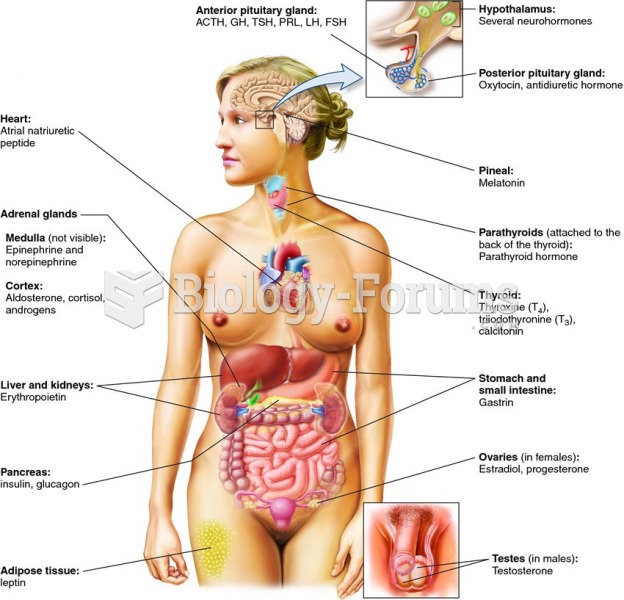Answer to Question 1
Correct Answer: 3
Rationale 1: There is more than one major component to the cardiovascular system.
Rationale 2: There are more than two major components to the cardiovascular system.
Rationale 3: There are three major components to the cardiovascular system. They are the blood, heart, and blood vessels.
Rationale 4: The cardiovascular system does not contain four major components.
Global Rationale: There are three major components to the cardiovascular system. They are the blood, heart, and blood vessels.
Answer to Question 2
Correct Answer: 1,2,4
Rationale 1: Psychological dependence usually requires the use of relatively high doses of antianxiety medication over a prolonged period of time.
Rationale 2: Psychological dependence is the need or desire to continue taking a drug when there is a lack of physical symptoms. In this case, the client does not feel anxious but still has the desire to take the antianxiety medication.
Rationale 3: Physical dependence produces physical signs of discomfort when the agent is discontinued. This is not true of psychological dependence.
Rationale 4: To continue the use of the antianxiety drug at the risk of jeopardizing relationships is indicative of psychological dependence.
Rationale 5: Physical dependence produces physical signs of discomfort when the agent is discontinued. This is not true of psychological dependence.
Global Rationale: Psychological dependence usually requires the use of relatively high doses of antianxiety medication over a prolonged period of time. Psychological dependence is the need or desire to continue taking a drug when there is a lack of physical symptoms. In this case, the client does not feel anxious but still has the desire to take the antianxiety medication. To continue the use of the antianxiety drug at the risk of jeopardizing relationships is indicative of psychological dependence. Physical dependence produces physical signs of discomfort when the agent is discontinued. This is not true of psychological dependence. Physical dependence produces physical signs of discomfort when the agent is discontinued. This is not true of psychological dependence.







